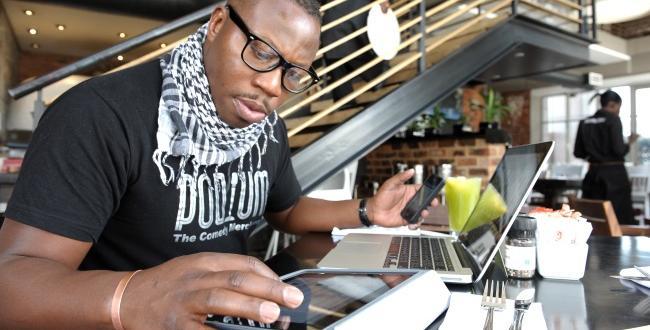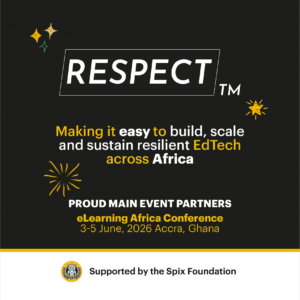The plenary sessions from eLearning Africa 2015 included presentations from a range of political leaders, entrepreneurs and educators from Africa and around the world. Under the overall conference theme ‘Enriching Tomorrow’, keynote speakers informed and inspired audiences with the latest ideas, best practices and innovations that are shaping the future of education across the continent. Here is our roundup of some of eLearning Africa […]
Recent news
Team Afri One win GIZ Hackathon for Social Good
In April, we brought you the news of the GIZ Gamification Hackathon for Social Good, which took place in May in Addis Ababa, Ethiopia, as part of eLearning Africa 2015. The event brought together makers from across Africa for a unique event that channelled their creativity, innovation and sheer endurance to come up with gamified solutions to social problems.
eLearning Africa Debate 2015: Move over higher education
On the final evening of the 2015 eLearning Africa conference, four education experts came together to debate a motion, which co-Chairperson Mor Seck, President of the Association of African Distance Learning Centres (AADLC), described as “one of the hottest topics in African education”: ‘This House believes that Africa needs vocational training more than academic education’.
Eleni Gabre‐Madhin’s next big ideas
“Innovation is in our DNA,” Ethiopian business woman Eleni Gabre‐Madhin told African Business Magazine when asked about her company eleni LLC’s ambitious plans to create “big, bold, beautiful” markets that will improve the livelihoods of millions of small farmers and traders throughout Africa.
Harnessing the entrepreneurial creativity of Africa’s youth
What skills do young people need to improve employability? How can we ensure youth are equipped with the right capacities and expertise to drive Africa’s economy in the future? These are just some of the questions that will be discussed in a series of ‘Youth in Action’ sessions at eLearning Africa 2015.
University degrees or vocational qualifications: Which side are you on?
This year the eLearning Africa plenary debate will tackle an important issue for the whole of Africa, as countries look for ways to alleviate youth unemployment and address critical skills shortages. On Friday evening, May 22, four education experts will debate the motion that: ‘This House believes that Africa needs vocational training more than academic education’.
Higher Education back on the development agenda
The Spring Meetings of the IMF and World Bank are attracting thousands to Washington, DC, this year, an unusually large number. This year is particularly important for international development because it ushers in the United Nations’ new ‘Sustainable Development Goals (2016-2030)’ as the ‘Millennium Development Goals (2000-2015)’ come to an end.
Innovation and sustainable development: Strengthening linkages in the ICT ecosystem in Africa
As Africa pursues the transformation agenda, there is urgent need to bridge the knowledge and capacity gap that exists in many countries and sectors. For any society to reach a reasonable level of sustainable development, a carefully planned integration of technologies would be required. To achieve this level of technological advancement, Africa needs to create innovative processes not only in the acquisition or development […]
The organisation spearheading Egypt’s ICT growth
Egypt is one of the regional, and indeed continental, leaders in this department. Since the 1990s it has been at the forefront in regard to governmental action on ICT-based development, creating several institutions and drawing up multiple ICT plans. It has been identified as an ICT ‘pioneer’ by the UN, and has seen strong growth both in terms of take-up by Egyptian consumers, and […]
‘Don’t overthink, just do it!’: Top 10 tips from Africa’s tech entrepreneurs
Few now doubt the potential of Africa’s tech scene. Analysts and economists the world over frequently cite Africa as the ‘next big thing’, primed to pick up the reigns from where the economies of the ‘Asian Tigers’ left off. The continent has always had entrepreneurs, but never before has so much attention been focused toward their activities, the success of which is seen as […]













